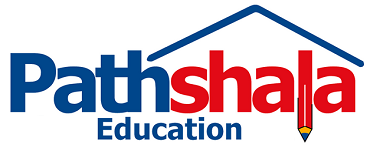
The internet has transformed education. The sheer number of online programs available makes choosing the right one incredibly difficult though. According to the good folk over at ProTrain, not all online certification courses deliver. Rigorous research and strategic comparisons remain key to identifying credible institutions delivering true ROI through remote curriculums.
Evaluating Program Legitimacy
The booming e-learning industry, while expanding access, also enables fly-by-night operators to prey on eager students. Accredited institutions undergo external auditing to verify quality standards. This includes instructor qualifications, current curriculums, ethical marketing claims, graduation rates, and job placement reporting. Unaccredited organizations face little accountability. The best courses feature material designed and delivered by working professionals currently excelling in their fields. Transparent career reporting also builds legitimacy by revealing actual employability liftoff achieved by past graduates. Finally, encrypted platforms using dual-factor authentication testify to an organization’s security seriousness when handling sensitive user data.
Customizing to Your Needs
The ideal course matches specific aspirations. Rather than chasing trendy buzzwords, students should articulate targeted skills and credentials for advancing a current career or changing course. A social media marketing certificate makes little sense for a mechanical engineer. Begin by conducting honest self-evaluations, including strengths requiring development and industries offering stability. Then seek narrowly tailored certifications delivering applicable tools through flexible, self-paced virtual models accessible anytime on any device. Some offer standalone credentials focused on teaching single skills, like copywriting or Java programming, in months. Others replicate extensive college degree programs blending video lectures, quizzes, group projects and access to subject matter experts over years, but completely online.
Committing the Time
While remote options remove travel requirements, credible certifications still demand dedication. Digesting sophisticated skills requires engagement akin to in-person participation. Review course schedules and self-assess readiness for absorbing materials. Factor in the ability to watch video modules, collaborate on projects, complete assignments, and take exams within structured timelines before registering. Some platforms improve accountability through progress tracking and reminder alerts. Additionally, courses centered on building hands-on abilities obviously require applying learned methodologies through independent work offline. Whether learning photography or auditing, expect assignments. When balancing jobs, school, family and life, reasonable time management proves critical to completion without burning out.
Staying the Course
Even self-directed learners need support battling frustration and uncertainty when expanding abilities independently. Effective online platforms thus cultivate communities and facilitate mentorship. Many sprinkle ongoing touchpoints across curriculums, allowing students to seek instructor guidance while mastering new techniques. They promote peer-to-peer discussion through chat channels and message boards that enable cooperation with classmates across geographical and cultural distances.
Continuing the Journey
The initial certification only opens the first door, not the final destination. Achievement depends on leveraging new skills, not simply collecting credentials. Students must implement methodologies through freelancing, entrepreneurship or intrapreneurship opportunities. Then continuing education expands capabilities across emerging realms like data science, genomics, FinTech and space. View certification as the launching pad towards lifelong learning demanded in fast-changing digital economies. The most credible providers thus partner with industry giants to keep curriculums adjusting to frontier developments. They also allow seamless enrollment in higher level programs, building upon introductory ones.
Conclusion
Online certification empowers self-directed learners to gain career capital without borders. But choosing wisely counts above all else. Conduct due diligence in evaluating program legitimacy through indicators like accreditation, instructor expertise, outcomes reporting and security. Seek narrow specializations aligning ambitions to industry needs rather than generalized credentials. Commit fully to modules and assignments on consistent schedules for comprehension. Engage course communities, instructors and alumni to access motivation and mentorship while advancing independently. Finally, apply and expand new skills continually through work and ongoing education. By following these best practices, virtual classrooms unlock unlimited personal potential.






